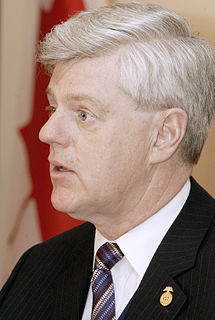A Quote by Robert M. Pirsig
I've wondered why it took us so long to catch on. We saw it, and yet we didn't see it. Or rather we were trained not to see it. Conned perhaps into thinking that the real action was metropolitan and all this was just boring hinterland. It was a puzzling thing. The truth knocks on the door and you say, "Go away. I'm looking for the truth." And so it goes away. Puzzling.
Related Quotes
What I hate about kitchen-sink dramas is [this idea] that the set is real, therefore you're going to be seeing truth. You have to earn truth. Truth can't be a part of the fact that people appear to talk that way and live in that room. You're looking for the poetry in something, and I don't mean poetry in the fancy sense. Naturalism believes by just replicating a thing you give the truth, rather than earning the truth.
Truth has power. And if we all gravitate toward similar ideas, maybe we do so because those ideas are true...written deep within us. And when we hear the truth, even if we don't understand it, we feel that truth resonate within us...vibrating with our unconscious wisdom. Perhaps the truth is not learned by us, but rather, the truth is re-called...re-membered...-re-cognized...as that which is already inside us.
[Consider] a fence or gate erected across a road] The more modern type of reformer goes gaily up to it and says, "I don't see the use of this; let us clear it away." To which the more intelligent type of reformer will do well to answer: "If you don't see the use of it, I certainly won't let you clear it away. Go away and think. Then, when you can come back and tell me that you do see the use of it, I may allow you to destroy it."
Truth, I have learned, differs for everybody. Just as no two people ever see a rainbow in exactly the same place - and yet both most certainly see it, while the person seemingly standing right underneath it does not see it at all - so truth is a question of where one stands, and the direction one is looking in at the time.
A more appropriate expansion is the statement "it is the responsibility of intellectuals to speak the truth and expose lies" a transcript of a talk to a writers conference in Australia in 1996, where I had been asked to talk on "writers and intellectual responsibility" - a question that I said I found "puzzling," because I knew of nothing to say about it beyond truisms, though these were perhaps worth affirming because they are "so commonly denied, if not in words, then in consistent practice."






































